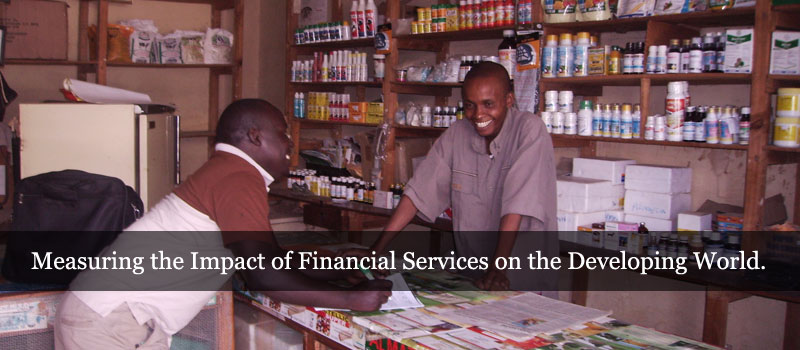Cash In, Cash Out: Financial Transactions and Access to Finance in Malawi
The aim of this project was to explore the extent to which a formal financial service provider, Opportunity International Bank of Malawi (OIBM), was able to add value to the households it served through specific service innovations. Our approach employed a Financial Diaries methodology to gather data on the financial lives of low-income households in Central Malawi, including both clients and non-clients of OIBM. The transactions data at the heart of the study contain weekly information on all participants' purchases, sales, and exchanges of goods and services, inclusive of all financial services. We applied this data to describe and analyze the use of informal and formal financial services in the full context of the economic lives of the participants in the study.
The project traces its roots to 2005, when OIBM received a grant from the Bill & Melinda Gates Foundation (BMGF) to pioneer a model of low-cost, technology-driven rural service delivery in Malawi. A BMGF-sponsored mobile banking van was the first of these delivery channels to be rolled out, and it became the primary focus of research. The van is essentially a high-tech bank-on-wheels, with both an ATM and a human teller on board, traveling on a regular schedule and making stops to provide a full range of services in areas without OIBM brick-and-mortar branches. The idea was that the van adds convenience by providing these services closer to the places clients live and work.
The project traces its roots to 2005, when OIBM received a grant from the Bill & Melinda Gates Foundation (BMGF) to pioneer a model of low-cost, technology-driven rural service delivery in Malawi. A BMGF-sponsored mobile banking van was the first of these delivery channels to be rolled out, and it became the primary focus of research. The van is essentially a high-tech bank-on-wheels, with both an ATM and a human teller on board, traveling on a regular schedule and making stops to provide a full range of services in areas without OIBM brick-and-mortar branches. The idea was that the van adds convenience by providing these services closer to the places clients live and work.
In our approach to the service innovation, we draw a sharp distinction between uptake and usage of financial products. From the client perspective, uptake is often about trying something new. Usage is more likely to be ongoing and an acknowledgement of the value proposition of the financial service, and is more likely to generate product development insights consistent with a vision of "client-led microfinance" (Cohen, 2002). We also place special emphasis on certain subtopics including risk management strategies and gendered dimensions of financial behavior.




